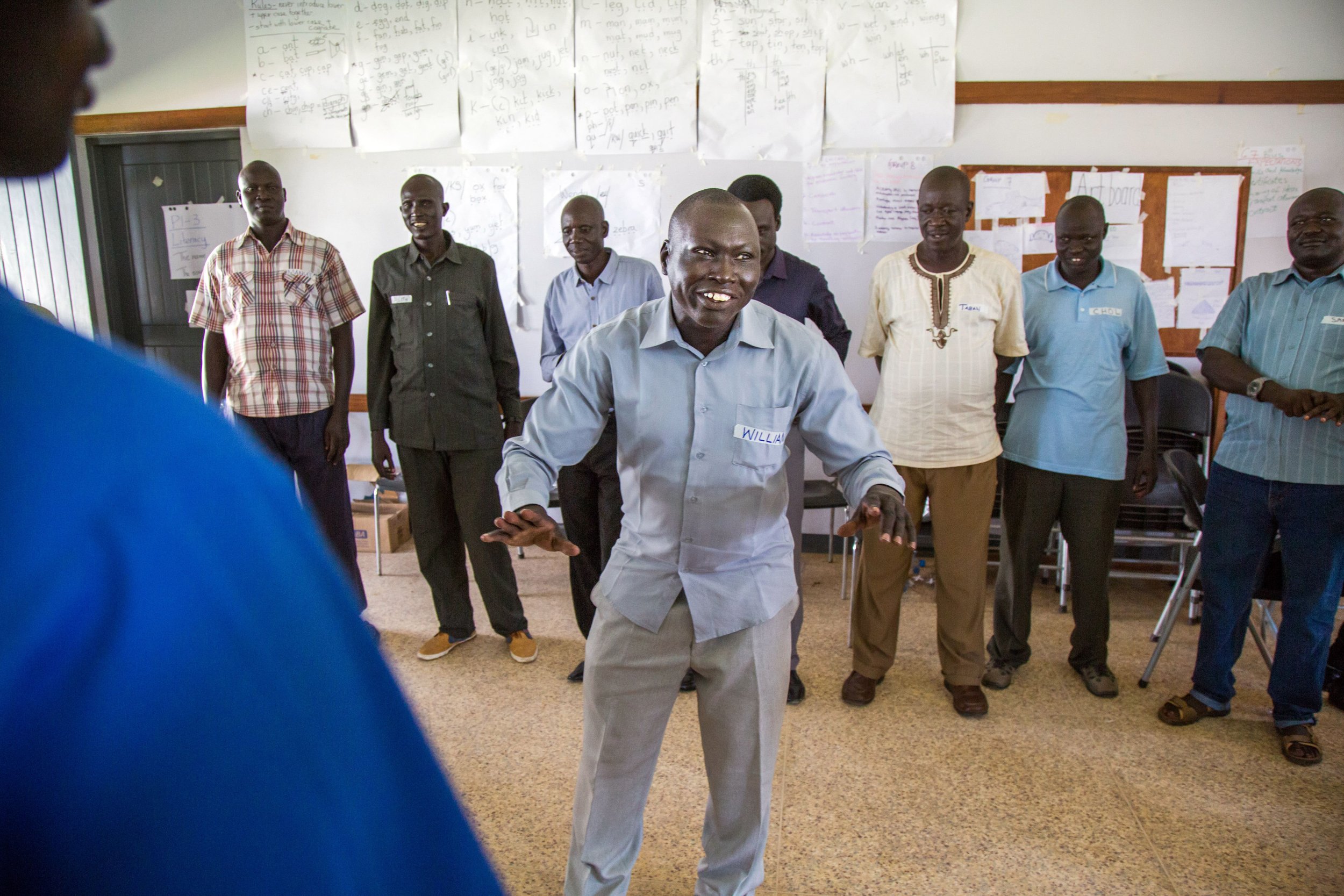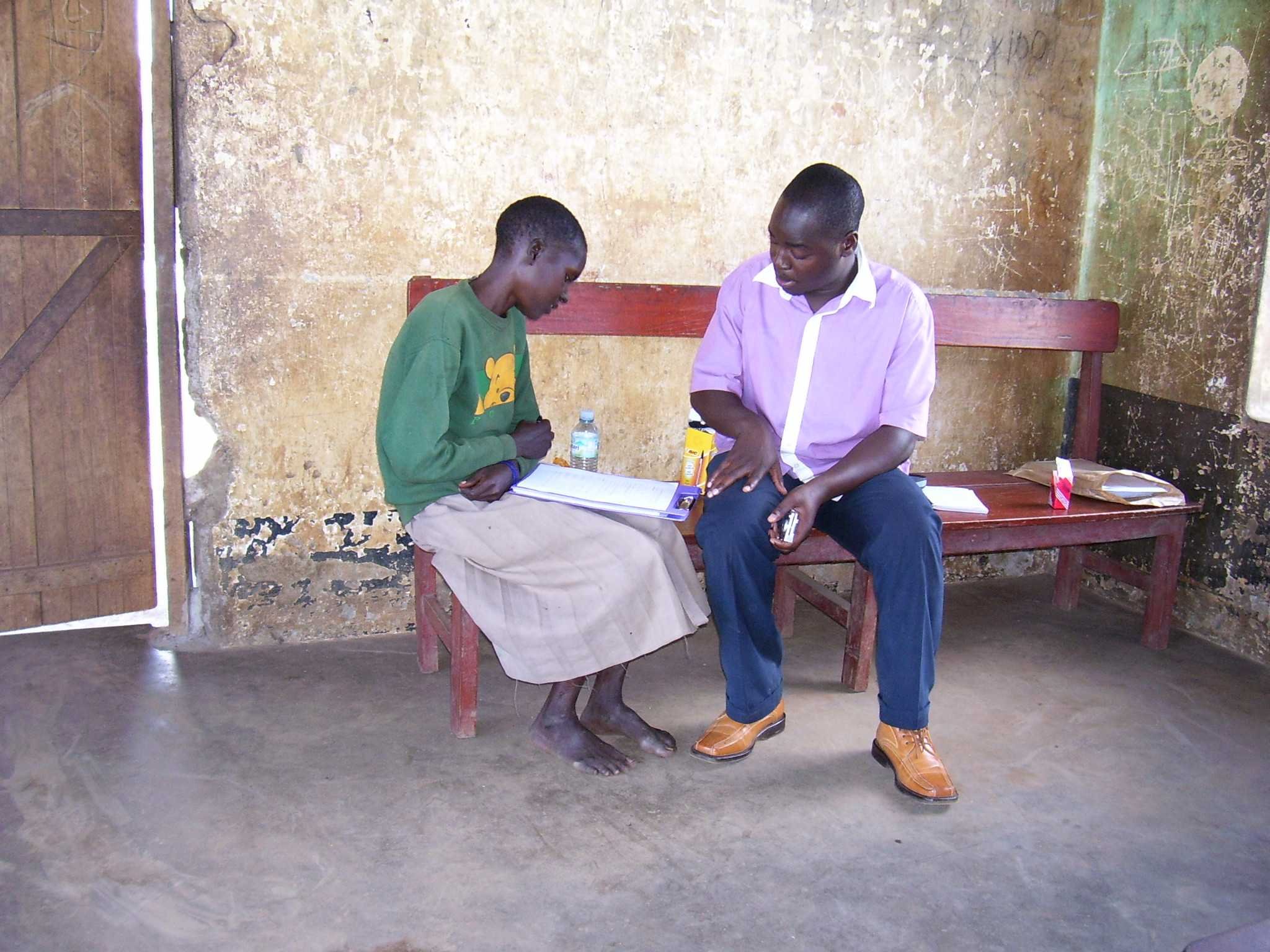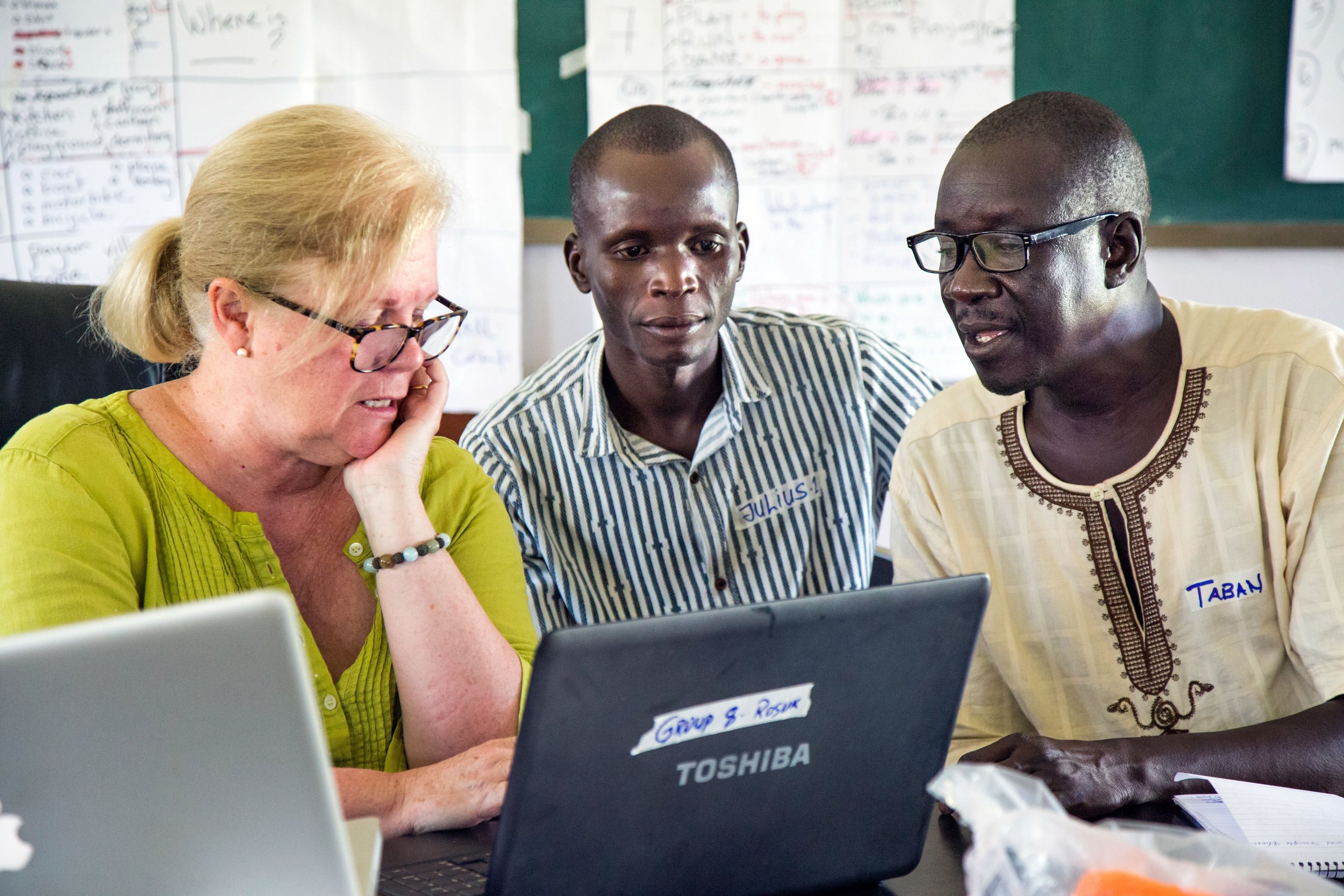Beyond Enrolment: Addressing Quality and Language Barriers in Education in Sub-Saharan Africa
Over the last twenty years there has been a significant and sustained increase in school enrolment at both primary and secondary levels across sub-Saharan Africa, including in Sudan and South Sudan where WTI works. While the strides in increasing school enrollment are worth celebrating, these achievements mark just the beginning of a larger journey towards holistic education. It is becoming increasingly clear that the attendance at school does not necessarily equate to effective learning.
Access to school is just the beginning
What are the educational challenges in Sudan, South Sudan, and Sub-Saharan Africa as a whole?
Persistent challenges such as discrimination, high drop-out rates, and socio-political disruptions contribute to a complex learning environment. Moreover, the current system's inconsistencies, especially regarding language of instruction, significantly hinder students' learning outcomes and amplify inequality. This piece is a reflection on these complex issues with suggestions for potential pathways to overcome the educational challenges and improve the quality and inclusivity of education in Sub-Saharan Africa.
Attendance at school does not necessarily mean that pupils are learning
Too little learning
Why focus on quality education in Africa?
There can be no dispute that millions of girls and boys are now in school. But attendance at school does not necessarily mean that pupils are learning. In fact, there is a broadly accepted view that too little learning is happening. Drawing on extensive research, UNESCO, The World Bank, or the Centre for Global Development it is clear that too little learning is happening. This will come as no surprise to Africa’s schoolchildren, nor to teachers or those responsible for education.
While there is near unanimity about the existence of the problem, it is clear that improving the quality of teaching and learning is a complex problem that defies easy or quick solutions. The UNESCO report referenced earlier was published ten years ago, but there appear to have been few improvements – and even fewer have led to sustained change. This is certainly true of the schools where Windle Trust International works and the educational challenges in Sudan and South Sudan. Ongoing conflicts, utterly inadequate financing of education at all levels, and poorly trained or unqualified teachers are key features of the context in which we operate.
A Framework for Learning
How can education in Africa improve?
More than decade ago the University of Bristol ran a major research programme to explore what we mean by the term ‘quality education’ and the factors that influence it. Their work highlights the importance of context, recognising that human capabilities are situated with specific social, political and geographic contexts. They go on to identify three levels of environments that together determine the quality of education
The policy environment which tends to operate at the national level and is seen in the way it defines the curriculum, regultes teacher training and qualifications and establishes mechanisms to manage and monitor performamce and quality. Crucially, it is also at the national level that financing of the education as a whole is determined.
The institutional environment of the school mediates and implements educational policy – and this is where school leadership and management is so important. It is differences at this level that can have a major impact on a school’s reputation and performance.
The home and community environment is the third critical level. Communities and families have quite different attitudes, financial circumstances and vulnerabilities to conflict or displacement.
Education quality is shaped by the linkages between these three contextual levels. We should not assume that they will all be neatly aligned to each other. For example, there may be a national policy on the length of the school day and the responsibilities of the teacher, but there is ample research evidence, backed up by the lived experience of Windle Trust International staff in both South Sudan and Sudan, who know that it is very common for teachers not to be in their classrooms for a significant part of the day. This does not mean that the teacher is shirking their duties; s/he may have been asked by the headteacher to do something else or to receive some visitors. The point is not whether the teacher is doing their job but to understand that there may be an inconsistency between national policy and regulation and the school as an institution. When that happens it makes it much harder to deliver good quality education.
The Importance of Language in enabling Quality Education
Language barriers in African education and improving teaching and learning quality in Africa
There is one very widespread discontinuity which has a profound effect on learning outcomes. It is a discontinuity that is often overlooked or not fully appreciated. It is a discontinuity that is deeply divisive and reinforces inequality and disadvantage.
In South Sudan for example the vast majority of children in their home and community will speak their mother tongue and often an associated language which is close to their mother tongue or widely spoken in the community. But after the first few years in primary school the language of instruction changes to English. This creates a major discontinuity between the two forces – the schools as an institution and the home and community - that have the most impact on both teachers and pupils.
For children from families and communities who rarely hear English and never speak more than a few words of it, this discontinuity puts them at an impossible disadvantage. If pupils cannot understand the lesson – whether it is Maths, English, Sciences etc - it is surely no surprise that no learning is happening. This leads to early drop out from school and the cycle of poverty, ignorance and disease that have impeded development for so long continue into the next generation.
It is equally destructive of good teaching. If a teacher simply does not have the ability to convey their knowledge and understanding of a subject in English, it might appear as if they do not have the ability to teach. In some cases that may be true, but in many other cases it is not the ability to teach that is missing, it is the ability to convey knowledge and understanding or to support struggling pupils in a language in which they are not sufficiently fluent.
This is not to suggest that if the language of instruction, especially in primary schools, were to change then it would lead to a dramatic or significant change in learning outcomes. WTI has been supporting educational development in the country for long enough to recognise that poor learning outcomes are the consequence of complex, multi-faceted problems which will need long-term and sustained interventions. But there is a real danger that the scale of the problem prevents us from taking small but important steps towards making improvements.
In the next few years it is inevitable that the focus of educational interventions will increasingly focus on improving the quality of education, rather than simply expanding access. It would be interesting to explore in more detail how to reduce the current misalignment between the home and community context and the school environment by focusing on the language of instruction.
Where next?
How does Windle Trust International work to improve quality of education?
While the increased school enrolment in Sub-Saharan Africa is an encouraging development, it's clear that access to education is only one part of a much bigger equation. Persistent issues like discrimination, high drop-out rates, conflict, displacement, and particularly the language of instruction, all contribute to a complex problem that significantly impacts the quality of education. It's crucial to remember that effective education is not simply about getting children into school; it's about ensuring they are engaged, understood, and truly learning once they are there. As we shift our focus from access to quality, there is a dire need for a multi-dimensional approach that addresses the various obstacles, with language continuity being a significant yet often overlooked aspect. This reorientation will be key in breaking the cycle of poverty and helping future generations in Sub-Saharan Africa to thrive. Our shared goal should be more than just enrolment; it should be a quality, inclusive education that prepares students for a brighter future.
Quality Education is a core strand of the Windle Trust International 2021-2025 strategy, and we work to improve quality of education across both Sudan and South Sudan. This includes activities such as training teachers, working with communities and Parent Teachers’ Associations, developing English language skills and supporting the development of improved curricular. Read more about our programmes, past and present:
Interested in receiving Windle Trust International news and Expert Views straight to your inbox? Sign up to receive a quarterly newsletter and learn more about our programmes, work and impact.
Article by Ian Leggett - Ian was the Executive Ditector of Windle Trust International (WTI) between 2014 and 2020. He managed programmes such as the Girls Education South Sudan programme as well as encouraging a focus on teacher training and development; improving the quality of teaching and learning and new initiatives such as accelerated secondary education for those who had been forced to drop out or never made the transition to secondary schooling. Before joing WTI, Ian worked with Oxfam, Comic Relief and People & Planet. He is currently a volunteer adviser to WTI .







